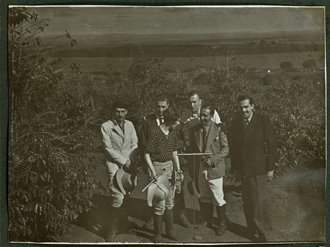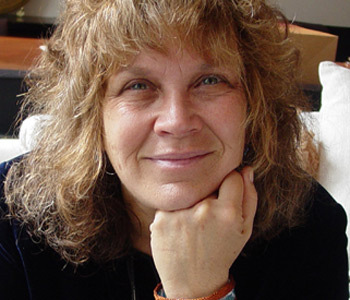Ian Merkel
Terms of Exchange: Brazilian Intellectuals and the French Social Sciences
Chicago University Press
272 pages, 6 x 9 inches
ISBN 9780226819792
Terms of Exchange is about Brazilian and French intellectuals and the dialogues between them that were foundational to the emergence of the modern social sciences. The book examines the interactions and exchanges that French social scientists had with Brazilians such as the modernist Mário de Andrade, historian Caio Prado Júnior, cultural theorist Gilberto Freyre, and sociologist Florestan Fernandes. As I show, these exchanges, although unequal, were invaluable for social and historical thought in the twentieth century, well beyond Brazil.
The historian Fernand Braudel once said, “It was in Brazil that I became intelligent.” This book shows why this was the case for him and several others whose work would become influential, including the anthropologist Claude Lévi-Strauss and his structuralist method; sociologist Roger Bastide and his approach to the study of the African diaspora, and geographer Pierre Monbeig’s work on settler colonialism and capitalism in the global periphery. It was in Brazil that these Frenchmen held their first university positions at the recently founded University of São Paulo (1934). Their exchanges with Brazilians in and outside of the classroom, I argue, allowed for the development of their thinking, the cultivation of intellectual networks, and ultimately the construction of social-scientific institutions in France. These include the École des hautes études en sciences sociales, the Laboratoire d’anthropologie sociale, and the Institut des hautes études de l'Amérique latine.
Brazilian scholars have long been interested in the story of the University of São Paulo and its French professors, especially since many of Brazil’s first professionally trained social scientists were trained by the French. But few have truly considered just how significant this Brazilian experience and network was in a global perspective. By using a wide array of archives and considering a broad range of intellectuals, Terms of Exchange shows just how important Brazil and Brazilians were in the history of the social sciences and global intellectual history more broadly.
I’ve written the book in an accessible—and, I’ve been told, an enjoyable—way. My hope, therefore, is that readers proceed from start to finish. Then again, different chapters might be read as stand-alone pieces, especially when used in the classroom. The first two chapters offer a cultural and intellectual history of São Paulo in the 1920s and 1930s. The third and fourth chapters, in which ideas such as structuralism and the longue durée are developed, could be useful when discussing methodology. The final chapters fully develop the argument about the flow of ideas and practices from Brazil to France, unsettling commonly-held notions about the directionality of influence.
Beyond its specific contributions to the historical field, this book responds to two major challenges of our present moment: 1) to recognize the contributions of Latin America and the “Global South” in intellectual history and 2) to reconsider theory and methodology in light of this. By resurfacing Brazil and Brazilian thinkers in the history of the social sciences, Terms of Exchange examines the flow of ideas from Brazil to Europe—ideas that were central to changing the way we think about the world economy, temporality, settler colonialism, and race relations to name just a few themes. In that sense, it is explicitly anti-Eurocentric. However, this is not a romantic story.
The inequalities between intellectuals in Brazil and the North Atlantic were very real. Differences in research infrastructure, language, and cultural prestige affected how people and ideas circulated (or didn’t) and whether their contributions were recognized. Exchanges between Arthur Ramos and Sigmund Freud shed light on this. Ramos was a psychiatrist and early specialist of Afro-Brazilian culture. He wrote several times to Freud, sending copies of his books. Freud simply responded that he did not read Portuguese. Brazilians such as Ramos had to read and communicate in French, English, and sometimes German, but they could not expect their own work to be read outside of Brazil. This is not unique to intellectuals from Brazil or Latin America: throughout the Global South, thinkers that were prominent in their countries of origin were effectively subaltern at the international level.
What makes this story so compelling, however, is that it complicates certain assumptions about rich and poor countries in terms of the practice of research. There is a great deal of literature that examines—and criticizes— how wealthy universities and private foundations have privileged the Global North and contributed to furthering inequalities. In this particular story, however, the birth of the modern social sciences is not some Rockefeller or Ford-funded project, but instead one that emerged in public universities in Brazil. Places like São Paulo decided to invest in the humanistic social sciences in the 1930s and 1940s, a period marked by the Great Depression and World War II. In so doing, they became important nodes in the development of innovative research in a wide range of disciplines.
When I began researching this book, my idea was to write an intellectual and cultural history of Brazil. But even if I identify first and foremost as a historian of Brazil, my earlier training in French language and culture allowed me to see connections that had largely gone unexamined. When they did appear in preexisting literature, discussion of these connections rarely extended beyond Brazil’s borders—even less so in the English language. Great Latin American cities—like all great cities—are formed by and contribute to local, national, and international contexts. My specific background, I think, allowed me to offer a fresh take on well-trodden territory.
They say not to judge a book by its cover or by the images contained within it. I have to say, however, I spent a lot of time thinking about these. The cover art was adapted from a print by Vicente do Rego Monteiro. It comes from his Quelques Visages de Paris (1925), a book which sought to provide a native Brazilian vision of the City of Lights. There are also wonderful photos of Claude Lévi-Strauss among colleagues at the Brazilian National Museum, Braudel in the interior of São Paulo state with Dina Lévi-Strauss, Bastide in Africa, and many others that give the reader a sense of the places and people that the book examines.
In terms of the writing itself, I would suggest to those browsing the book to start with the conclusion. There, they will encounter a compact discussion of the importance and resilience of Franco-Brazilian exchange, whether in Mário de Andrade’s literary creation or Fernando Henrique Cardoso’s exile and the beginnings of dependency theory. Brazilian Modernism and Marxism are strands that are present throughout the book; here, I think, they really come out in their full glory. One sees, for example, Andrade’s character Macunaíma with “Gargantua, his Gallic brother, drinking wine and aguardiente, calling rum cachaça, cassoulet feijoada, screaming, laughing, [and] inveighing in Tupi terms.”
I know that for a lot of readers, the early 20th century is a distant time. Readers who are more interested in the recent history of the 1960s and 1970s will be curious to read and learn more about the 1930s and 1940s, an earlier period in which the social sciences and the international system in which they are embedded had yet to coalesce. This is indeed one of the major contributions of the book.
Photograph of Braudel, Maugüé, Dina Lévi- Strauss, and others. Claude Lévi-Strauss, Claude Lévi- Strauss Archive, Bibliothèque nationale de France.

In the humanities and the social sciences, we are truly at a crossroads. For very good reasons, scholars—young scholars in particular—are calling for an overhaul of curricula. We need to rethink the Western canon and provide space to new voices outside of Europe and North America. In my view, this requires a two-fold approach. On the one hand, we need to multiply our knowledge of alternative ways of thinking and being in the past and in other parts of the world. On the other, we need to break through the mold of area studies to better see connections—connections that destabilize assumptions about the vectors of knowledge and culture. I tried to do both in the Terms of Exchange.
The book highlights the role of Brazilians both in understanding the empirical reality of Brazil but also in the development of theory. Brazilian thinkers, as I show, were crucial partners in the construction of two of the twentieth century’s most significant intellectual paradigms: structuralism and the longue durée. As many of us continue to resurface thinkers from what is often considered the “Global South,” I think we need to work hard to listen to the ways in which these intellectuals thought beyond themselves— to highlight not just their local knowledge but also their contributions to global intellectual life that extended beyond their geographic or cultural or ethnic specificity. What I hope to convince readers of is that this is not a polemical exercise but one based on historical reality and archival research.




We don't put paywalls. We don't distract you with ads. We don't sell your data.
Please help to keep this running!